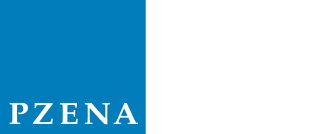Pzena Investment Management – Global Modern Slavery and Human Trafficking 2024 Statement
This statement is issued by Pzena Investment Management, LLC1 and its affiliated entities (together, “Pzena”), to outline the actions we have taken to identify and mitigate the risk of modern slavery and human trafficking occurring in our business operations and supply chains. This statement is for the reporting period 1 January 2023 to 31 December 2023. It is issued as a joint statement in compliance with both section 54 of the UK Modern Slavery Act of 2015 and section 13 of the Australian Modern Slavery Act of 2018.
We are a global investment management firm headquartered in New York City with business development offices in London and Melbourne and an operational and business development office in Dublin. We apply a classic value approach to investing that requires a commitment to research-driven stock selection and environmental, social, and governance (“ESG”) integration. Our team focuses on research that yields a deep understanding of the long-term prospects and intrinsic value of a company. We have always believed that ESG issues, such as modern slavery, where material to a company’s operations from a risk or an opportunity perspective, have the potential to impact these drivers of earnings. That is why we became signatories to the Principles of Responsible Investing (PRI) in 2018, a member of the Sustainability and Accounting Standards Board in 2020, accepted the Japan Stewardship Code in 2021, joined the Net Zero Asset Managers initiative (NZAMi) in 2022 and have continually added ESG resources to our investment team.
We believe our success and reputation depends on both the quality of our products and services, and on how we conduct our business. We therefore aim to be a responsible corporate citizen with a strong adherence to ESG standards. Responsibility, sustainability, and respect for human rights are integrated into our business and due-diligence models and in the way we serve our clients and manage our investments. We support and actively seek to align our values with the United Nations Guiding Principles on Business and Human Rights and take seriously our responsibility as a business enterprise to respect human rights.
We believe that given the nature of the services that we offer that the risk of our involvement in modern slavery and human trafficking throughout our operations, and supply chains is low, as (i) we and our suppliers generally operate in lower risk jurisdictions, (ii) we have in place robust money laundering controls to mitigate against the risk of financing modern slavery or bonded labor, and (iii) our business partners in the financial services sector present a low risk of modern slavery. To assess, monitor, and mitigate our risk we have formed and empowered an ESG Operating Committee and a Vendor Management Committee, each charged with reviewing our business operations, including potential exposure to modern slavery and human trafficking in all its forms.
Our Investments and Stewardship
To analyze and manage the risk of modern slavery in our investments, we rely on our established and robust ESG-integrated investment due diligence process. We are also active owners of the companies in our portfolios and proactively engage and assist companies where risk – or allegations of – modern slavery exist. We profile select engagements in our annual Stewardship Report and actively discuss any incidents quarterly with our interested clients.
Integrated ESG analysis is central to the investment process of a value manager precisely because we are examining companies experiencing pain. Sometimes this pain is the result of a poorly managed ESG risk which created the buying opportunity in the first place. It is our job as a value manager to understand what went wrong and focus our research on whether the company can remediate the issues. As shareholders we are also active owners, voting proxies and maintaining a dialogue with company management on key issues, remediation of risk and the path towards earnings recovery. We spend a large proportion of our research effort after investment continually monitoring risk factors as well as revisiting and testing our assumptions against a company’s real-time earnings progression. Assessment of emergent challenges and opportunities is core to our process.
As this relates to modern slavery concerns, it is our view that certain industries are naturally more exposed to risks or allegations of modern slavery than others. The most common industry risk factors include reliance on low-cost labor, and/or opaque and complex supply chains. Industries where these risk factors are more common include engineering & construction, agriculture and apparel manufacturing. We pay particular attention to modern slavery when researching companies in these industries. We will also research and evaluate any instance of modern slavery that may present itself in other industries, even if the common risk factors were not present. We have produced an industry and organizational risk assessment document for analyzing modern slavery risk that is used to assess ongoing and potential investments, which can be found here. In addition, we use several data providers to help screen our investments for potential allegations of modern slavery on an ongoing basis.
In terms of our approach to due diligence, we evaluate company modern slavery disclosures, policies, and procedures and proactively engage management to understand how they think about these risks. This applies to new positions and existing positions in the portfolio where an allegation of modern slavery may appear during the course of ownership. As appropriate and where necessary, we engage management to understand the nature of the allegations and advocate for changes to a company’s actions.
Finally, some manifestations of ESG risk may not have a clear financial impact on earnings but are deemed material societal risks. In these cases, we approach the issues as we would material financial risks. We consider child labor and/or involvement in human trafficking as such a risk regardless of the impact on company earnings and therefore will engage management if instances or allegations of these activities exist. We plan to continually evaluate whether we should add additional issues to this list in the future.
Our People
We take seriously our responsibility to respect the human rights of our employees and strictly comply with applicable employment regulations in the jurisdictions in which we operate.
We respect the rights of our employees to enjoy just and favorable work conditions, including health and safety protections. We are committed to providing adequate information and training on health, safety and wellbeing issues, including enabling our employees to identify and address any modern slavery risks.
All employees have the right to work in a professional atmosphere that promotes equal employment opportunities and prohibits discriminatory practices in all forms, including based on age, race, nationality, ethnic origin, gender, sexual orientation, religion, marital status, or disability. We conduct annual Workplace Conduct training to support our commitment to an equitable work environment in which all individuals are treated with respect and dignity.
We also promote diversity, equity, and inclusion. The Pzena DEI Advisory group was initially a taskforce to evaluate ways we can better support diversity, equity, and inclusion internally and externally. Committees focused on specific areas deemed most important including education, hiring, and charitable actions. This set the direction of our efforts over the last several years and we have institutionalized a DEI survey, expanded charitable giving by the company and within our departments, educational opportunities, recruitment strategies, and a DEI newsletter to share learning and resources. The DEI Advisory Group provides feedback, ideas, and shares insights and acts as a point of contact for employees to share their thoughts and ideas as well.
In addition, all employees are made aware of the important role that they play in upholding our high standards of conduct and integrity in all we do through our Code of Business Conduct and Ethics, Employee Handbook, whistleblowing policy and other policies.
Our Operations and Supply Chains
We are a purchaser of products and services for the purposes of our internal operations. Our supply chains include providers of financial services data and software, and providers of business services including travel, hospitality, catering, and office supplies and services.
We are committed to ensuring that our supply chain is free of human trafficking and modern slavery. Where appropriate, we may seek specific representations from vendors.
We have incorporated these matters into our vendor management and due diligence process and highlight any areas of concern, such as modern slavery risks, to our Vendor Management Committee, with escalation to senior management as appropriate. Our Vendor Management Committee is comprised of managers from Compliance, Finance, Human Resources, Operations, and Information & Technology. Topics such as cybersecurity, financial health, availability of independent audit reports, and disaster recovery, among others, including human trafficking and modern slavery policies and other risk mitigation measures, are reviewed in the Vendor Management Committee’s analysis. No potential suppliers were identified as high risk during the statement reporting period.
Remediation
In the event our concerns with any supplier are not resolved to our satisfaction, including their relationships and due diligence with their own suppliers, we reserve all options, up to and including termination of our relationship with the relevant supplier.
Effectiveness
We are committed to continually reviewing and updating our policies and procedures to ensure they are effective and are being followed in practice. The ESG Operating Committee and Vendor Management Committee serve as the mechanisms by which we monitor and assess the effectiveness of the actions we have taken to assess and address modern slavery risks in our operations and supply chains.
Consultation
Pzena serves as the principal operating company for its affiliates and retains responsibility for assessing and addressing modern slavery risks in our operations and supply chains.
Approval
This statement was approved by the Executive Committee2 of Pzena Investment Management, LLC on June 14, 2024.
| By: | |
| Name: | Caroline Cai |
| Title: | Chief Executive Officer & Portfolio Manager3 |
| Pzena Investment Management, LLC |
1 Pzena Investment Management, LLC is the reporting entity for purposes of the Australian Modern Slavery Act 2018.
2 The Executive Committee is the principal governing body of Pzena Investment Management, LLC. Each member of the Executive Committee is a Managing Principal of Pzena Investment Management, LLC and has authority to make representations and accept obligations on behalf of the business.
3 Ms. Cai is a member of the Executive Committee and was authorized to sign this Statement on its behalf.


